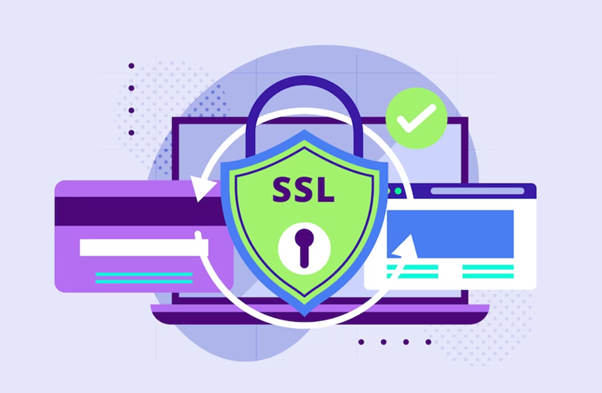
SSL certificate: What is it, and why do you need it?
In 2020, Google stated that having an SSL certificate is a ranking factor. Since then, the number of SSL certificate installations has grown significantly. At the same time, it is a prerequisite for visitors to trust the website, which speaks of its reliability and security. The resource https://techreport.ngo helps to learn more about the features of the Secure Sockets Layer. In this article, we will learn what it is, how it is installed, and why it is significant.

What is the Secure Sockets Layer, and why is it essential?
SSL is a protocol for encrypting and protecting all data exchanged between the server and the user. By encrypting all data, this protocol ensures the safety of users and web platform owners, as it prevents third parties from accessing or leaking information. It is not only about registration data, such as a login or password but also about the customer’s payment information, so in the case of e-commerce, it is impossible to do without SSL at all. The data transmitted in this way remains encoded for the participants of the information transmission chain: Internet provider, Wi-Fi network administrator, etc.
So, foremost, SSL is needed by those websites that have a registration or payment form. However, given that the protocol is also a search engine ranking factor, it is now a necessary element of any web platform.
Types of SSL certificates
- With domain verification. The simplest and most common option. To get one, you need to confirm the rights to own the domain. This is done in three ways: by email, using DNS records, or installing secret token files.
- With company verification. The certificate includes domain verification and also requires the company owner to confirm the right to do business. An online payment system or correspondence with users requires this certificate.
- With advanced verification. This option is suitable for legal entities, as it requires the presence of an officially registered enterprise. The company must provide registration documents, the right to carry out activities, and contact data. Websites of financial and banking organizations, insurance companies, and state institutions use such certificates.
Certification centers
To obtain a certificate, you need to contact CAs engaged in checking domains and other information. The centers meet the strictest security conditions, which allows them to carry out such operations. These are companies such as RapidSSL, GeoTrust, Symantec, and others.
It costs $15 to $140 per year, depending on the type of inspection. Also, sites can get a certificate for free by contacting Let’s Encrypt—this is a non-commercial project that exists thanks to sponsors’ funds. However, the free certificate is only issued for 3 months.
The next step is to install SSL on the hosting server. You need to go to the service control panel and follow the instructions. You will need the certificate file and its private key to perform the procedure. In most cases, uploading in the appropriate fields is enough, after which the system will automatically do everything necessary.
What if your website doesn’t have SSL?
First and foremost, you won’t be able to utilize all the mentioned benefits and advantages. However, experts from https://elsitech.com also point out the following:
- SSL protects the interaction process between users and your website. The increased security risk lies in cybercriminals finding it easier to intercept personal, confidential, and financial information. Vulnerabilities can include payment details and account accessibility, for instance.
- Since cybercriminals can enrich themselves easily with personal information, web browsers have started addressing this issue. Browsers such as Chrome or Safari warn users about the absence of SSL by displaying a corresponding label in the address bar. Most users tend to close such sites and refrain from purchasing them. Consequently, the lack of SSL causes a significant loss of customers, even if you have previously ensured the impeccable quality of your products and have an excellently functioning service.
- Web browser creators are not the only ones concerned about user protection. Search engines have also incorporated SSL into their ranking factors. Without a security certificate, your site has significantly lower chances of appearing at the top of search results. As a result, the traffic to your website could decrease by more than half.
- You won’t be able to implement a convenient payment system on your site because service providers of such systems also require secure connections for streamlined payment processing and legal compliance. The same goes for many other third-party developer products you might try integrating into your site.
In essence, without SSL, you neglect user security and deprive your resource of the chance to thrive and comply with modern standards, norms, and rules.
